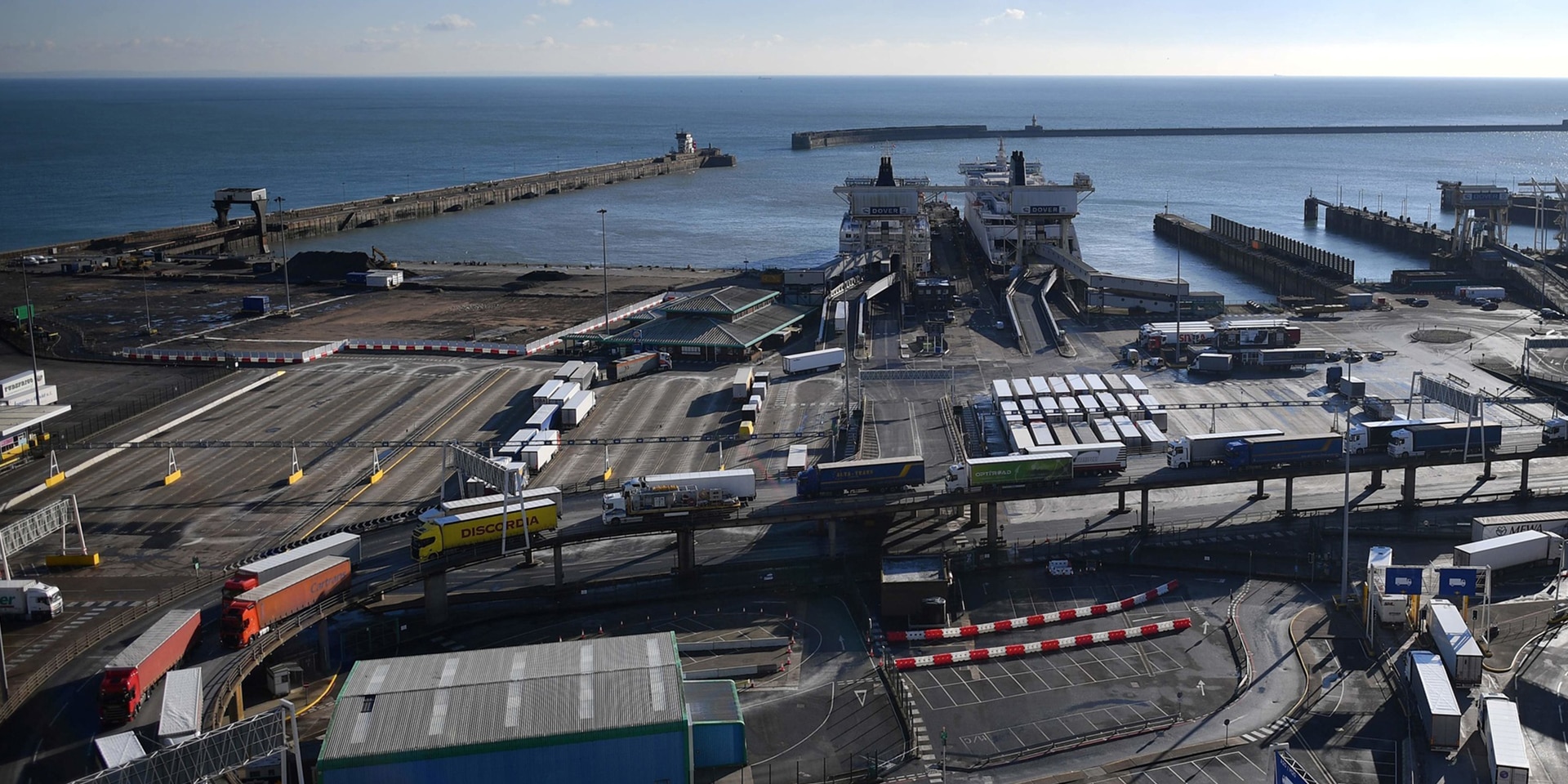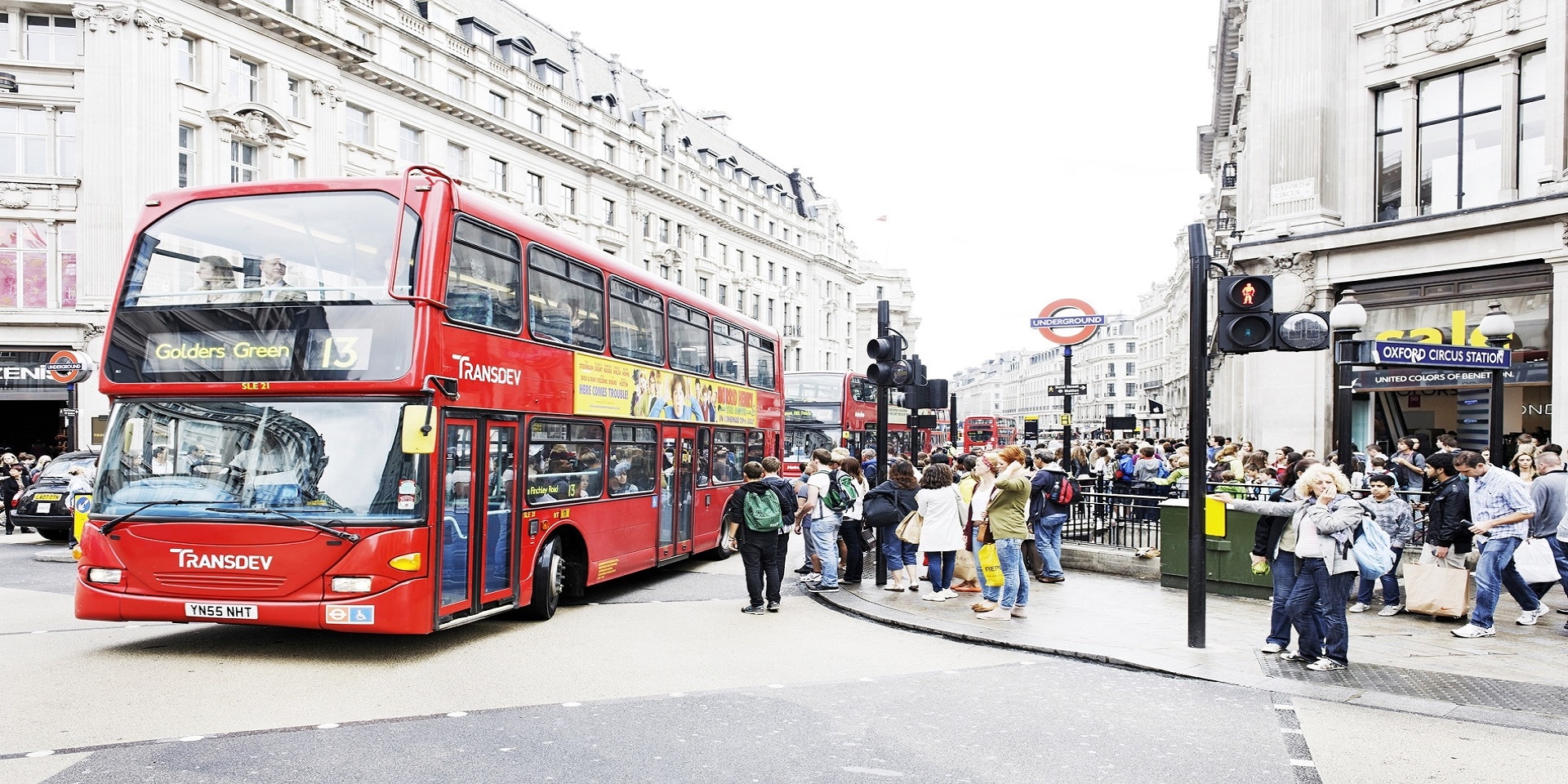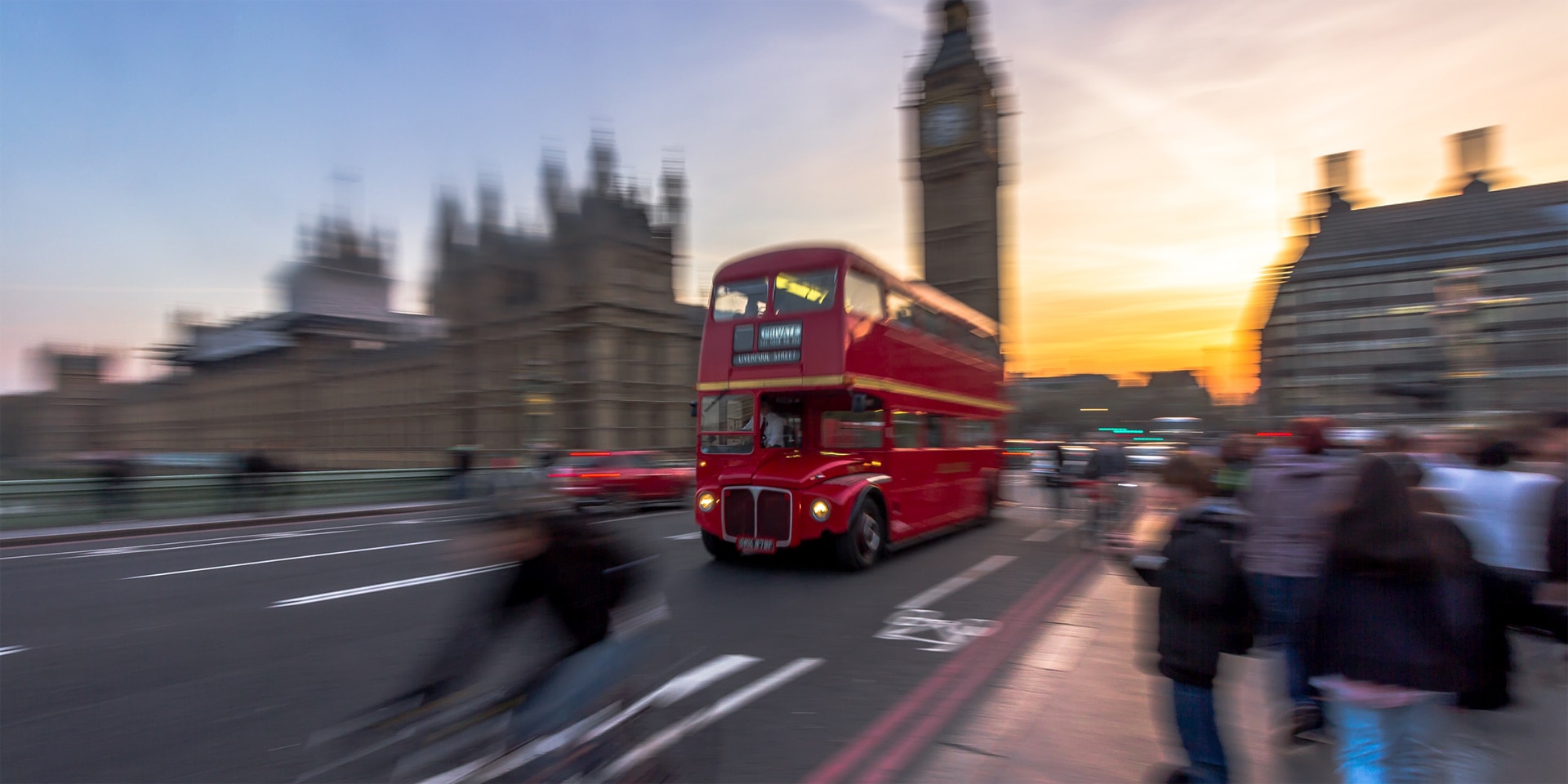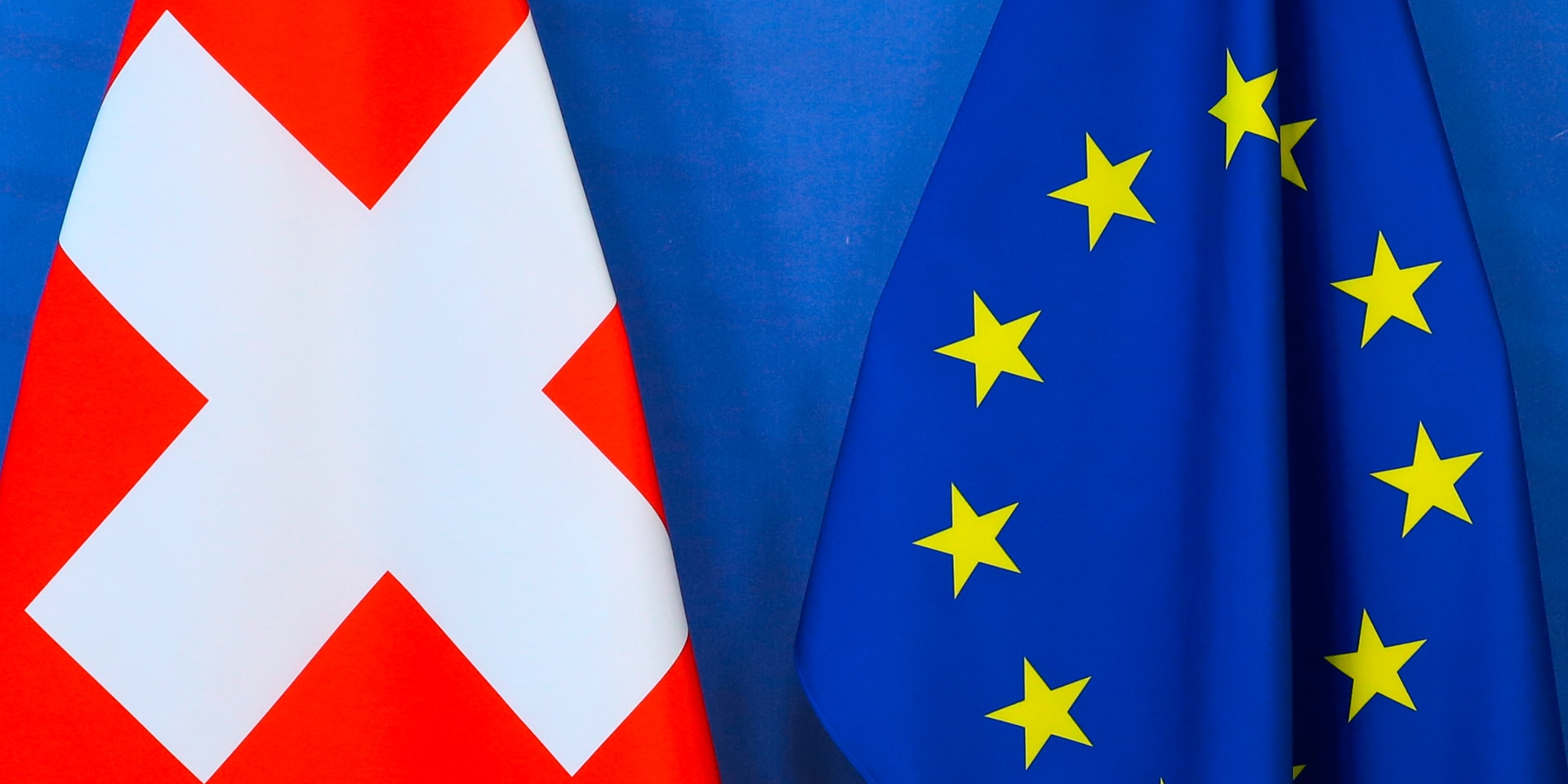«The divorce may have been finalised, but that does not settle the question of Brexit»
Current foreign policy issues are being discussed at the Ambassadors' and Foreign Network Conference from 23 to 26 August 2021 in Bern. The topics range from cyber security to equal opportunities and also include European policy. In this context, it is interesting to take a look at other countries that, like Switzerland, do not belong to the EU and have chosen their own paths in bilateral relations – such as the United Kingdom and Norway.

Lorries transport goods into the United Kingdom after arriving by ferry in Dover. © Keystone
Markus Leiter is the Swiss ambassador in London. In an interview, he reflects on the Federal Council's "Mind the gap" strategy and takes a look at the first experiences of the United Kingdom with Brexit. "The country is still divided on whether Brexit was the right decision", he says.

A few days ago, the Federal Council approved a new social security agreement with the United Kingdom (UK). What is new here – and why is the agreement necessary?
The new agreement will align the two countries' social security systems following the UK's withdrawal from the EU. Specifically, it grants insured persons largely equal treatment and facilitated access to social security benefits, as well as avoiding cases of over- and underinsurance. The agreement thus makes life easier for insured persons and companies.
Switzerland and the UK previously coordinated their social security systems via the Agreement on the Free Movement of Persons between Switzerland and the EU.
The social security agreement is the ninth agreement Switzerland has signed with the UK as part of the Federal Council's 'Mind the Gap' strategy, which aims to ensure legal continuity in Swiss-UK relations and safeguard mutual rights and obligations. Can you give us an overview of how things stand?
Overall things are looking very positive with regard to the agreements we've negotiated, and implementing them has largely been a smooth process.
Now that continuity has been ensured via the "Mind the Gap" strategy, we can focus on strengthening our ties with the UK. We believe it is in both our interests to expand our cooperation in areas such as financial services, trade and migration.
Discussions on financial services are at an advanced stage: we are seeking an agreement here based on the mutual recognition of financial market regulation and of the respective regulatory framework. This should facilitate cross-border market access for a wide range of financial services in the insurance, banking, asset management and capital market infrastructure sectors.
Before Brexit, many Swiss nationals living in the UK were unsure whether their residence status would change. Has this issue been resolved or do you still receive many enquiries from Swiss nationals?
Switzerland and the UK signed a Citizens' Rights Agreement in early 2019: this preserves the rights Swiss citizens living in the UK held under the Agreement on the Free Movement of Persons until 31 December 2020, including residency rights, social security entitlements and the recognition of professional qualifications. Reciprocal conditions apply to UK citizens in Switzerland.
By 30 June 2021, all Swiss nationals in the UK affected by the agreement had to register with the UK authorities under the EU Settlement Scheme. Around 20,000 Swiss citizens did so.
The embassy in London launched a comprehensive campaign to help Swiss nationals register under the new system. I'm pleased to say that we've received almost no further enquiries about this since the beginning of July.
After a transitional period, the UK definitively withdrew from the EU on 1 January 2021. How did things change in the UK in the six months following the withdrawal?
This is hard to assess due to the impact of the COVID-19 pandemic and the fact that so little time has elapsed. The sharp decline in trade flows during the first quarter of 2021 can be attributed to issues such as inventory build-up in anticipation of Brexit, delays in adapting to new rules, the introduction of non-tariff barriers, and changes in supply channels. There was an upswing in trade during the second quarter, including with the EU. This may well indicate that a catch-up is in progress, though we need more time to discern any economic shifts.
At the political level, Brexit remains a key topic in the UK's domestic political debate and, of course, in its relationship with the EU.
Avoiding a "hard border" between Northern Ireland and the Republic of Ireland has been a key concern in negotiations between the UK and the EU. Could you briefly explain this issue?
The Northern Ireland Protocol was signed at the end of 2019 as part of the Brexit withdrawal agreement between the United Kingdom and the EU. It is essential in preventing a hard border between Northern Ireland and the Republic of Ireland. The border was a source of tension during the three decades of violence between republican Catholics who sought reunification with Ireland and Protestant loyalists who wanted to remain part of the United Kingdom. It was vital that negotiations on the UK's withdrawal from the EU resolve the issue of Northern Ireland and preserve the fragile peace that has reigned since the Good Friday Agreement in 1998.
To avoid a hard border between the Republic of Ireland and Northern Ireland, the protocol effectively moves the border to the Irish Sea, between Northern Ireland and Great Britain. Goods being transported between Great Britain and Northern Ireland are subject to new procedures and to checks in Northern-Irish ports and airports. This has led to interruptions in supplies to the province and has also angered Unionists, who wish to preserve Northern Ireland's place within the United Kingdom. It is a complex situation, and both parties are still searching for a solution.
Are people in the UK still talking about Brexit, or have they largely come to terms with the new situation?
Five years after the Brexit referendum on 23 June 2016, public opinion remains divided. Few of those who voted in 2016 have changed their minds, so the country is still equally split on the merits of leaving the EU. Even though the divorce is now final, the issue of Brexit and its possible repercussions is not yet resolved. This is evident from the situation in Northern Ireland, as well as the fact that the debate on Scottish independence has once again opened up.
Norway: membership of the European Economic Area (EEA)
- The people of Norway have voted twice against joining the European Union – in 1972 and again in 1994. The country's two main political parties (conservatives and labour) are in favour of membership. However, they are careful not to make it official party policy, as a clear majority of the population remains resolutely against EU membership.
- Through its membership of the EEA, Norway pursues a policy of active integration. This policy is widely supported domestically and it does not include EU membership. It relies instead on a multi-year strategy and annual work programmes, which have framed relations with the EU since 2014.
- Norway pursues active cooperation with the EU in many areas, readily aligning itself with EU positions and often joining the EU in imposing sanctions. In so doing, it seeks to improve its ability to influence the legislative and decision-making processes in Brussels in its favour, particularly in the sectoral areas that are important to it. When it does not support the EU, it is because other interests, such as commercial interests, require it. Sometimes tensions arise around issues relating to fishing rights and quotas, free movement of persons or social benefits. The EFTA Surveillance Authority regularly criticises Oslo's unequal application of certain rules, which it often ends up adapting for the sake of pragmatism and realism.
- With its economy largely dependent on oil and gas, Norway knows that its future will depend on an ecological transition. It aims to become a pioneer in electricity production and sustainable energy in Europe. In this regard it is committed to being fully involved in the Green Deal launched by the EU Commission.
- Norway is in favour of strengthening free trade and supports the expansion of the FTA network through EFTA. Like Switzerland, it is committed to paying greater attention to the BRICS and emerging countries, although its interests do not always coincide with ours.



